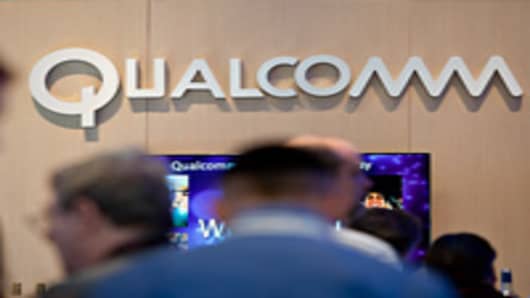The only computer most people in the world may own is their smartphone and that could have a profound impact on healthcare, Paul Jacobs, Qualcomm CEO, told CNBC's "Closing Bell" n Friday.
Half of the six billion mobile phones in the world right now are in emerging markets and smartphone demand is growing globally as features improve, the wireless tech company CEO said.
"We're still continuing to grow strongly because the smartphone market is growing around the world," Jacobs said.



